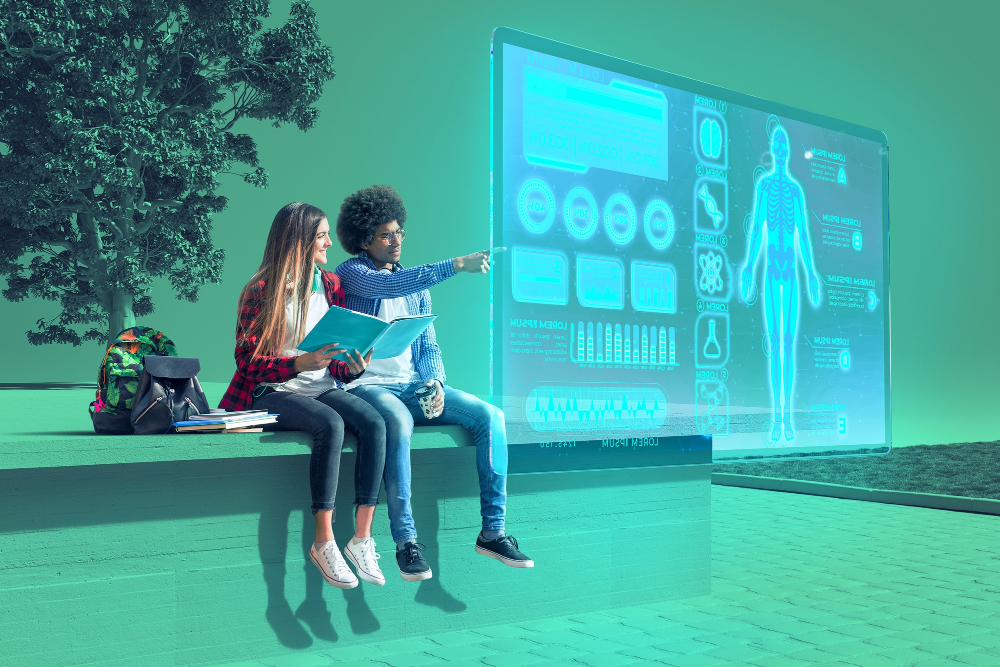Introduction
Artificial Intelligence (AI) has quickly emerged as an economic game-changer worldwide, revolutionizing industries across industries worldwide. Once considered science fiction, now this revolutionary technology has become tangible reality transforming how businesses run while opening doors to opportunities in various areas.
Artificial Intelligence (AI) has made waves in various industries and applications by exploring its many uses, benefits and possible challenges.
AI in Healthcare
Artificial intelligence will revolutionize healthcare delivery. From early disease detection and personalized treatment plans, to machine learning algorithms that detect patterns a human expert might miss, AI helps healthcare professionals provide more accurate diagnoses and improve care delivery for their patients. AI technology not only increases accuracy in diagnoses but also allows more targeted and efficient treatments plans to be created by healthcare providers.
Artificial Intelligence has many notable uses within healthcare. Perhaps one of its most impactful applications in radiology is analysis: AI tools are capable of accurately evaluating medical images such as X-rays and MRIs to help radiologists quickly spot potential abnormalities that require further examination; making the diagnostic process faster and more precise than ever. An AI algorithm can also predict outbreaks by analyzing information from multiple sources, providing quick responses to potential health crises. Another significant advancement of artificial intelligence lies in drug discovery: AI is revolutionizing this long, costly process by helping machine learning models analyze large databases of chemical compounds to quickly identify candidates for new drugs that hold promise of faster drug deliveries to patients in need.
Retail and E-Commerce
AI has had an exponential effect on retail and e-commerce businesses. Customer experience is crucial in today’s digital era, so AI helps create personalized interactions for each individual customer. AI powered chatbots provide 24/7 coverage to answer customer enquiries while virtual assistants give instantaneous feedback during purchase processes increasing customer satisfaction levels substantially.
One of the more notable applications of AI in retail is recommendation systems. These programs examine customer behavior, browsing history and purchasing patterns to provide customized recommendations that not only assist customers in discovering items of interest more easily but also increase sales through upselling/cross-selling techniques.
Supply chain management is another area where artificial intelligence (AI) has made significant strides forward. AI algorithms can use realtime predictive analysis of demand to optimize inventory levels and ensure products are available when and where needed, eliminating risks of runningout-of-stock as well as unnecessary excess inventory resulting in more efficient operations and significant cost savings.
Finance and Banking
AI’s impact on finance and banking industries has been unprecedented. AI-powered risk assessment algorithms can scour large quantities of financial data in order to assess an individual or business’s creditworthiness more accurately – this allows lenders to make better informed decisions while offering credit access for those overlooked by traditional credit scoring models.
Fraud detection is another key application of AI in finance. Machine learning models can detect anomalies and patterns in transactions to quickly spot fraudulent activities that might otherwise go undetected. An active approach to fraud prevention saves financial institutions billions each year while safeguarding both their customers and the integrity of the financial system. AI powered chatbots have revolutionized customer service delivery within banking. Human agents can focus on more complex, high-value tasks while AI-powered robot advisors assist investors by analyzing market trends and tailoring investment advice specifically tailored towards meeting individual goals and accepting risks. takerisks
Manufacturing and Industry
Artificial intelligence is revolutionizing manufacturing efficiency and productivity. Industrial robots equipped with AI capabilities perform tasks that require precision and repeatability – from assembly of products, quality checks, to working alongside humans within factories.
Predictive maintenance can be a game-changer in manufacturing industries that use heavy machinery. AI algorithms analyze sensor data to forecast when equipment may break, enabling timely maintenance to minimize costly downtime and costly repair bills. By shifting maintenance from reactive to proactive maintenance models, predictive maintenance results in significant cost savings while simultaneously increasing business retention rates.
AI is revolutionizing manufacturing by optimizing supply chain processes. Analyzing information sourced from suppliers, logistics partners and internal operations operations, AI algorithms can analyze this information and use AI techniques to reduce delays, minimize transportation costs and ensure continuous raw material supply chains.
Transportation and Logistics
Transportation and logistics sectors are currently experiencing an exciting transformation powered by AI technology. Autonomous vehicles guided by sophisticated AI algorithms and sensors could revolutionise transport as we know it; their sophisticated algorithms can navigate complex urban environments while improving road safety by eliminating human errors on routes and improving route optimization.
Predictive analytics powered by artificial intelligence (AI) significantly enhance logistics efficiency. Predictive analytics use AI-powered predictive demand patterns, which allows companies to increase inventory efficiency while decreasing excess stockpiling. Furthermore, an AI algorithm analyzes various sources such as weather forecasts and traffic patterns in order to optimize delivery routes while providing accurate estimated arrival times for deliveries.
Challenges and Ethical Considerations
Although AI holds vast potential, its growth comes with inherent challenges and ethical concerns that need to be considered. One such concern is job automation taking over routine or repetitive tasks – which increases job loss risk in certain industries; but history also shows us how technological progress often creates new job opportunities elsewhere if workers possess appropriate skill sets.
Bias in AI algorithms is another challenge of note. Without proper management and evaluation procedures in place, AI systems may unintentionally perpetuate social biases present in their training data, leading to unfair decisions in areas like recruitment, lending and criminal justice. To protect ourselves against this happening again it’s key that systems be trained on diverse datasets with representative characteristics as well as performing regular monitoring to identify any biases before continuing operations.
Data privacy and security are of equal concern with AI applications. Because AI systems rely on huge volumes of data for making informed decisions, implementing strong safeguards against any sensitive information must be prioritized to safeguard individual’s personal details. Legal frameworks like General Data Protection Regulation (GDPR) play an integral role in assuring it is handled responsibly and ethically.
Conclusion
Artificial intelligence (AI) is revolutionising industries spanning healthcare and retail stores to finance firms and manufacturing plants alike. With AI at work across these areas, its transformative potential cannot be overstated, creating new efficiencies with precision and innovation that could revolutionise businesses worldwide. As AI continues its rise, businesses and policymakers need to identify challenges associated with it as well as any ethical concerns, in order to harness its benefits effectively and ensure they can do so responsibly. By taking advantage of AI capabilities and mastering its complexity, industries can stay at the forefront of innovation while driving sustainable growth in this digital era. Moving forward, responsible AI integration will be essential in fulfilling AI’s full potential for driving positive changes across sectors.




